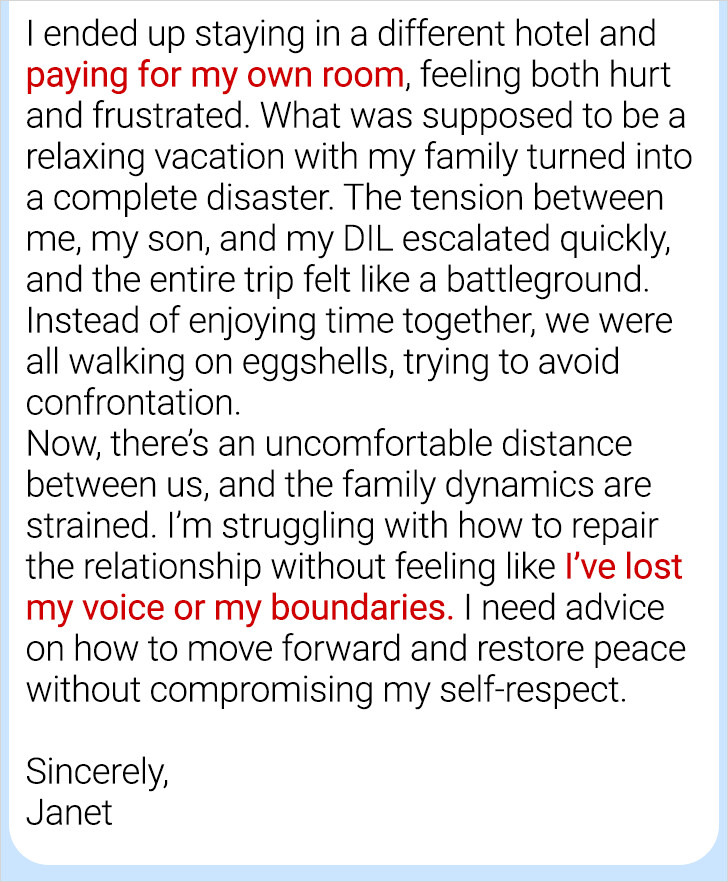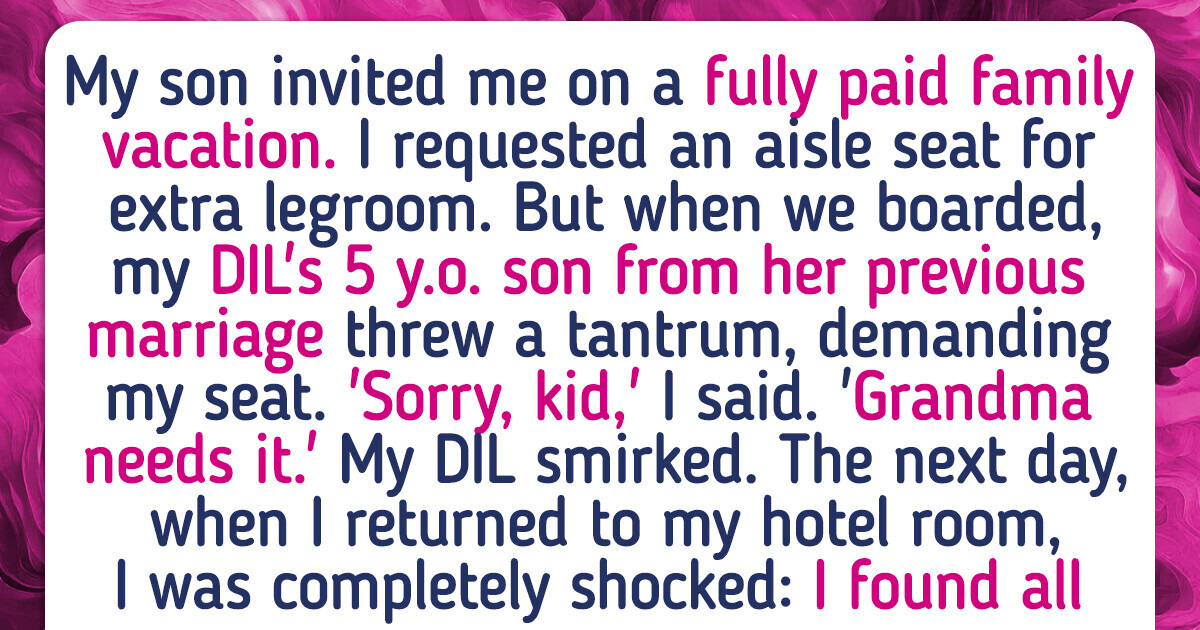I Refused to Give Up My Seat to My DIL’s Spoiled Kid / Bright Side
Family vacations are supposed to be a time for bonding and relaxation, but they don’t always go as planned. One woman found herself caught in a whirlwind of tension when a simple request for a plane seat led to a heated family dispute. What began as a well-intended trip turned into a dramatic situation involving her daughter-in-law, her son, and ultimately, her relationship with both.


Thank you, Janet, for opening up and trusting us with your story. Sometimes, family drama can catch us off guard, even during a vacation. We hope our advice will help you navigate this situation and find a resolution that works for everyone.
Talk to your son privately.
Address the situation with your son in private, away from the influence of your daughter-in-law. Let him know how the incident made you feel and explain that you don’t want to create conflict but feel disrespected. Emphasize that you want to maintain a positive relationship with everyone, but your voice needs to be heard. A heart-to-heart conversation could help your son see your perspective and give him the chance to mediate between you and his wife.
Consider a family meeting.
Sometimes, a group discussion can help clear the air. Suggest a calm, respectful family meeting where everyone, including your daughter-in-law, can voice their concerns. Make sure to approach the conversation with an open mind, and encourage everyone to listen actively. It may help to establish expectations and boundaries regarding family vacations or shared responsibilities.
Practice empathy.
While it’s understandable to feel hurt and frustrated, practicing empathy can help you approach the situation with more compassion. Try to consider your daughter-in-law’s point of view—she might have felt undermined or disrespected by your refusal to give up the seat. This doesn’t excuse her actions, but it could provide some context for her behavior. Empathy doesn’t mean you have to accept disrespect, but it can make it easier to find common ground and understand each other’s perspectives.
Focus on what you can control.
You can’t control how others act, but you can control how you respond. Instead of focusing on the family drama, shift your energy toward things that bring you peace and joy. Maintain your personal boundaries and ensure that your needs are met. Sometimes, letting go of things that are beyond your control can help ease the tension.
Give yourself space.
If emotions are running high, it might be helpful to take a step back for a while. Giving yourself space to process the situation will allow you to make decisions without the pressure of ongoing conflict. Taking time for yourself could also provide an opportunity to reflect on what you truly want and need from your relationships. Once you’ve had time to think, you can return to the conversation with a clearer mind and a more balanced perspective.
“My MIL is retired and visits us a lot,” our reader shared. “I asked her to help by cooking for the kids while my husband and I work full-time. She refused, saying, ‘I’m a guest here!’ So I told her she was no longer welcome in our home. Days later, my 10 y.o. called me in tears. I rushed home immediately and froze in disbelief: I found my children…” Click here to find out what the MIL did.







